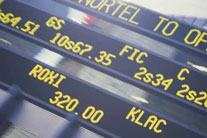 “Remembering that I’ll be dead soon is the most important tool I’ve ever encountered to help me make the big choices in life. Because almost everything – all external expectations, all pride, all fear of embarrassment or failure – these things just fall away in the face of death, leaving only what is truly important. Remembering that you are going to die is the best way I know to avoid the trap of thinking you have something to lose. You are already naked. There is no reason not to follow your heart.”
“Remembering that I’ll be dead soon is the most important tool I’ve ever encountered to help me make the big choices in life. Because almost everything – all external expectations, all pride, all fear of embarrassment or failure – these things just fall away in the face of death, leaving only what is truly important. Remembering that you are going to die is the best way I know to avoid the trap of thinking you have something to lose. You are already naked. There is no reason not to follow your heart.”
– Steve Jobs
The press has been full of wise words from the “man from Apple”, but those ones really struck a cord with me yesterday.
I’m guilty of spending too much time worrying about failure – and in so doing, failing to put my neck on the line and go with what I believe in.
It’s my ego that’s getting in the way. And I see it more than ever when I examine my trading…
Sabotaging myself
My trading record is littered with trading strategies that I’ve worked hard on… built up results on… tested… retested… and then completely abandoned after a brief losing run.
When my personal ego gets tangled up in my trading, it not only does it get bruised itself – it also tries its very best to sabotage my whole trading strategy.
When my ego is involved, I begin to think that it’s me against the markets, and I want to prove that I’m right.
But the truth is that the market really doesn’t care.
I’m playing against myself. And I’m proving to be my own worst enemy.
So, how do we keep our egos well clear of my trading account?
Ask yourself some hard questions
Do you think you’ve got your ego in check?
Do you think egos are only for arrogant traders who like to brag about their winnings, or pontificate in weekly newsletters?
Then you might like to ask yourself some of these questions…
• Do you ever hesitate over your trade, or abandon a strategy too soon?
(That’ll be your ego afraid that he might look like a fool.)
• Do you not know when to stop? Overtrading after you’ve hit your daily targets?
(That’ll be your ego strutting like a peacock.)
• Do you ever widen out your stops to avoid taking a hit?
(That’ll be your ego refusing to admit he was wrong.)
• Do you snatch up profits too soon?
(That’ll be your ego congratulating himself that he got it right.)
• Do you ever add to a losing position?
(That’ll be your ego insisting that he’s in the right, despite the evidence.)
Any of these sound familiar?
So, what are we going to do to keep this “dark side” of our trading personality out of our trading account?
Locking out my account
The ego equates the trader’s self-worth with his trading: a winning trade makes you a better person… a losing trade diminishes you.
It’s human nature to do battle with this – human beings aren’t designed to take criticism well. That’s why I don’t think it’s helpful to give yourself a hard time about this.
I could go and get myself an expensive therapist… discuss how my parents never praised me when I scored the winning goal for the Under 12s… and bemoan my battered, fragile ego.
Or I could build a bloody big wall around my trading to keep my ego out.
And the latter is exactly what I do.
The “wall” I use to keep my ego out is a mechanized trading system. This doesn’t have to be an automated “robot” system (in fact, I don’t use trading robots at all) – but it does have to be a prescriptive strategy that doesn’t allow me to meddle… to tweak… or to wonder “what if?”
By sticking to trading rules, I can follow them without over-thinking and over-analysing my trades.
I leave the “thinking” bit of my trading to the off-the-books stuff that I’m testing and trialling.
